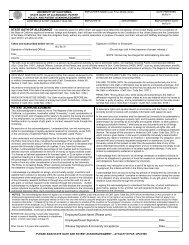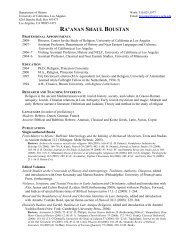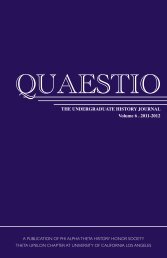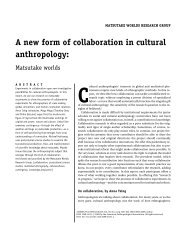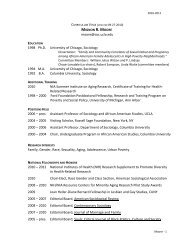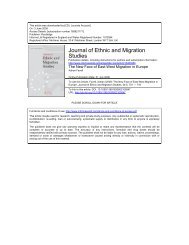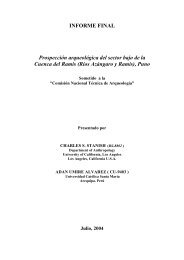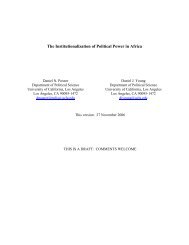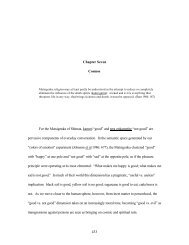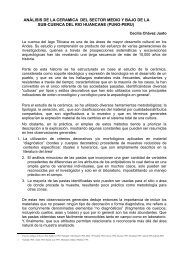The Long-Term Effects of Africa's Slave Trades - Social Sciences ...
The Long-Term Effects of Africa's Slave Trades - Social Sciences ...
The Long-Term Effects of Africa's Slave Trades - Social Sciences ...
You also want an ePaper? Increase the reach of your titles
YUMPU automatically turns print PDFs into web optimized ePapers that Google loves.
most impacted by the slave trades.<br />
A second potential source <strong>of</strong> selection may be that societies that initially<br />
had domestic slavery may have selected into the slave trades. If this is the<br />
case, then the estimates may be capturing a negative relationship between<br />
domestic slavery and subsequent economic development similar to that documented<br />
by Engerman and Sokol<strong>of</strong>f (1997, 2002), Sokol<strong>of</strong>f and Engerman<br />
(2000) and Lagerlöf (2005).<br />
For the areas <strong>of</strong> Africa that were a part <strong>of</strong> the much older Islamic slave<br />
trades there was domestic slavery. It is unclear whether domestic slavery<br />
is a cause or a consequence <strong>of</strong> the external slave trades. However, for the<br />
parts <strong>of</strong> Africa that were previously untouched by the Islamic trades, recent<br />
evidence shows that prior to the trans-Atlantic slave trade, chattel slavery<br />
did not exist. 19 Hilton (1985) shows that in West Central Africa there was<br />
no trade in people prior to the arrival <strong>of</strong> the Portuguese. She provides<br />
evidence showing that in the sixteenth century, words that originally meant<br />
‘servant’ or ‘prisoner’, were altered to take on the meaning <strong>of</strong> a traded slave.<br />
Historian and Anthropologist Jan Vansina (1989), using much more detailed<br />
linguistic data, confirms Hilton’s finding that in West Central Africa there<br />
was no word previously for slave. Vansina also maps the origin <strong>of</strong> the word<br />
‘pika’ which originally meant servant, but took on the meaning <strong>of</strong> a traded<br />
slave. <strong>The</strong> word originated at the coastal ports engaged in the slave trade<br />
and spread to the inland communities that were also involved in the trade<br />
(see Vansina, 1989, 1990). Additional studies from other regions also show<br />
that prior to the external slave trade domestic slavery did not exist (e.g.,<br />
Harms, 1981; Inikori, 2000; Hall, 2005, p. 16).<br />
5.2 Instrumental Variables<br />
<strong>The</strong>re are two potential sources <strong>of</strong> bias in the OLS estimates. One arises<br />
from the existence <strong>of</strong> country characteristics that are correlated with both<br />
slave exports and current economic performance. <strong>The</strong> other is the presence<br />
<strong>of</strong> classical and non-classical measurement error in the slave export estimates.<br />
A potential solution to the two problems is the use <strong>of</strong> instrumental<br />
variables. If one can find instruments that are correlated with slave exports,<br />
but uncorrelated with country characteristics and measurement error, then<br />
instrumental variables will yield consistent estimates. In the following two<br />
sections, I provide IV estimates using two different instrumenting strategies.<br />
19 Before this evidence was brought forth, there was debate in the literature over whether<br />
domestic slavery existed prior to European arrival (e.g., Fage, 1962; Rodney, 1970).<br />
27




